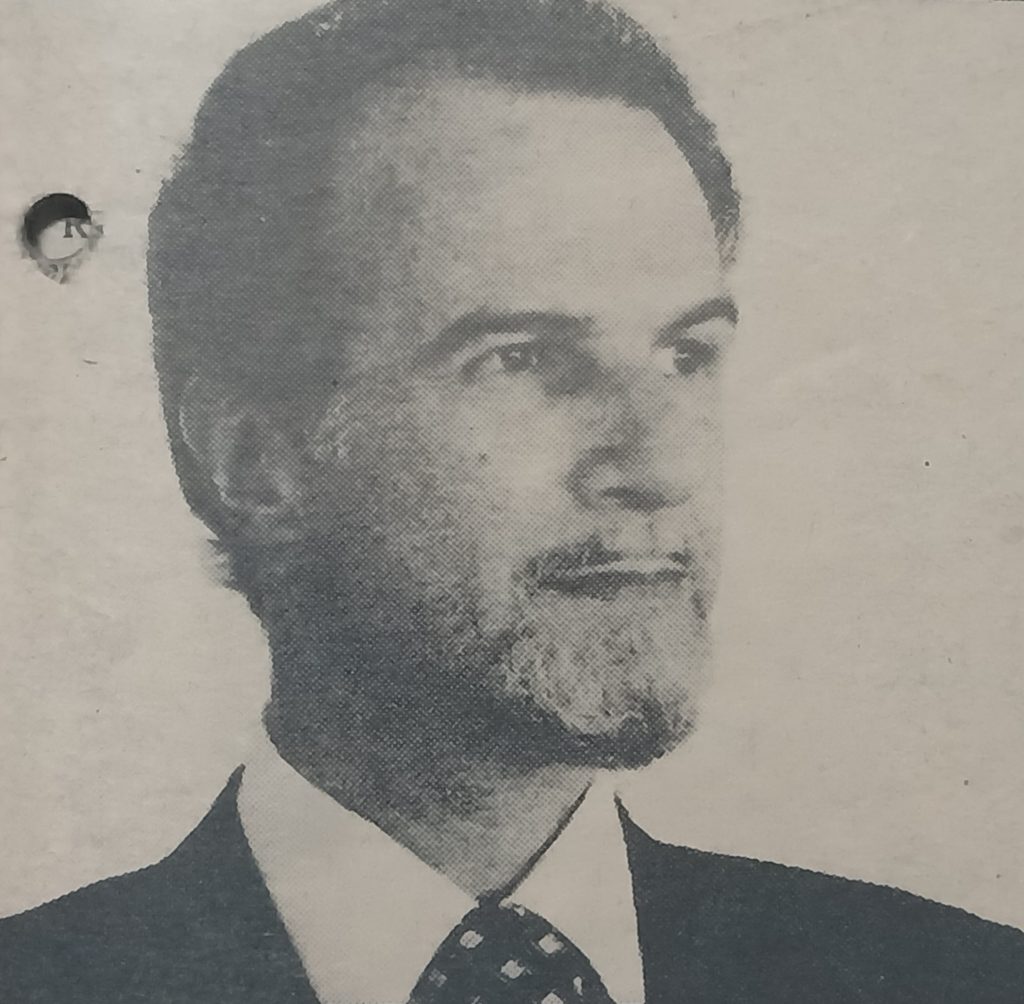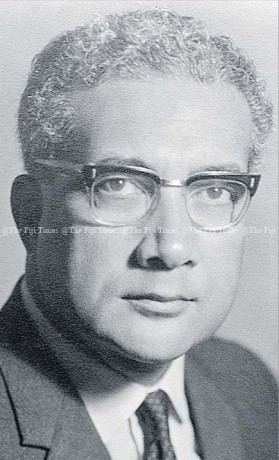THE Fiji Times, according to an article on November 8, 1979, published former prime minister Ratu Sir Kamisese Mara’s letter to former chief justice Sir Clifford Grant.
In his letter dated October 29 that year, Sir Grant was asked to step down and make way for a local citizen to take on the role of chief justice.
The full text of the letter is below.
“One of these of which I believe we are entitled to be singularly proud has been the manner in which the judiciary has developed and matured to meet the needs of the community.
It is gratifying to record that it has proved possible to progress along this path without compromising any of the fundamental principles enshrined in the British legal system, which, with Independence, we in Fiji were at pains to preserve and nurture.
This fact reflects great credit upon yourself, since I have not the slightest doubt that the example which you, as Chief Justice, have set to your brother judges and the magistrates has been crucial in the growth and development of our judicial system since 1974.
I am fully aware that the maintenance of the standards which you have set for yourself demands a large measure of personal discipline and self-sacrifice, not least in accepting the social isolation which inevitably must attend the office of the Chief Justice.
I, therefore, avail myself of this opportunity to place on record my gratitude for the key role which you have played in the emergence of Fiji as a well-ordered independent country.
The fact that the people of this country have implicit trust in the integrity of our judicial institutions must be regarded as a tribute to you.
It is also pleasing to note that in what is, after all, a relatively short period of time, it has proved possible to elevate three Fiji citizens to the Supreme Court bench.
Since the prescribed number of puisne judges is eight, I think we can be justifiably proud to have achieved this measure of localisation.
While I am not qualified to make authoritative statements as to the respective abilities of the local judges, I am assured by senior members of the legal profession that all three are highly respected by the Bar for their sound judgments, courtesy, and good sense.
Hearing these pleasing reports, I have had cause to wonder when we might hope to see a Fiji citizen advance to the office of Chief Justice
It would seem to me as a layman that each of the three local judges is of sufficient maturity and learning to discharge the onerous functions of this office, and I am encouraged in this assessment by the favourable comments from members of the Bar to which I have referred.
I appreciate that this is a delicate matter, but I am confident that you are alive to the fact that while we must not rush headlong into localisation for its own sake, it is inequitable to resist the appointment of a Fiji citizen to a post, however demanding, if it is apparent that there is a suitably qualified person available.
In expressing these sentiments, I am also conscious of the provisions, both in the Constitution and in the Independence Order itself, which place upon the Prime Minister a legal obligation to play a part in the localisation process.
There is no easy task for any Prime Minister, but it is one which cannot be shirked.
I hasten to add that I cannot imagine that it would ever prove necessary to rely upon provisions of the law in order to bring about the localisation of the post of Chief Justice, and I am certain that you would find a hint of such a course of action quite abhorrent.
Nevertheless, after long and careful consideration, I am satisfied that the time has now arrived when one of the local puisne judges should be appointed Chief Justice and invite your co-operation in ensuring that this goal be achieved as soon as reasonably practicable.
It is always difficult to settle upon a timetable for such an exercise, but I wonder if we might aim for a date approximately six months from now.”
The Chief Justice then replied to his letter the next day with the following.
“Thank you for your letter (October 29, 1979), and I have noted the views you have expressed.
As I would have no wish to remain in office if my services were no longer required, it would be proper for me to bring your views to the attention of the Governor-General, who is the appointing authority under Section 14 of the Fiji Independence Order and Section 90 of the Constitution in the case of the Chief Justice.
If His Excellency so requires, I shall immediately put in hand arrangements for my future and notify His Excellency of the date on which it will be possible for me to lay down the burden of office.”
Former Chief Justice Sir Clifford Grant.
Picture: FT FILE

